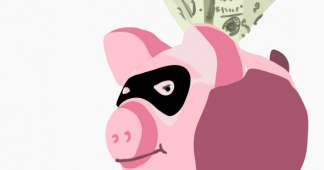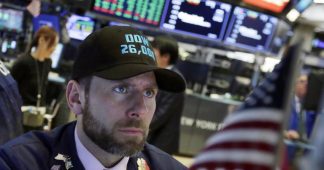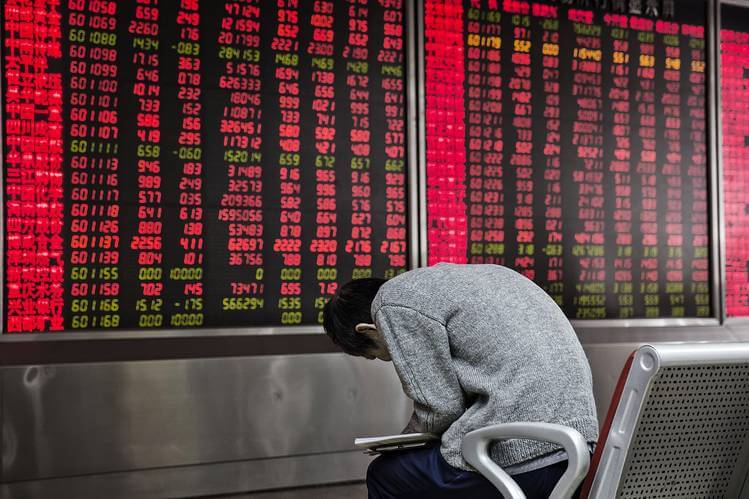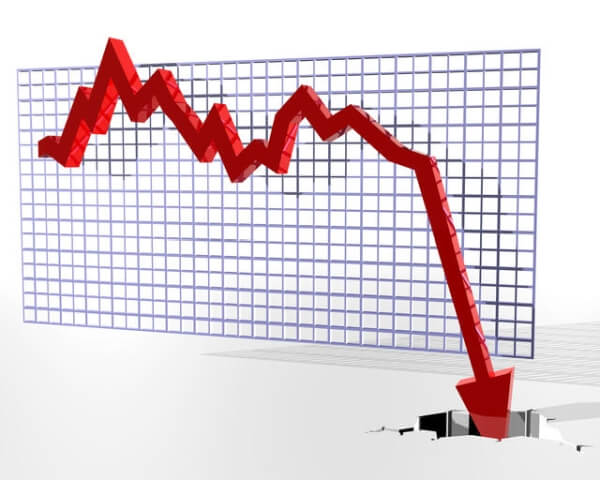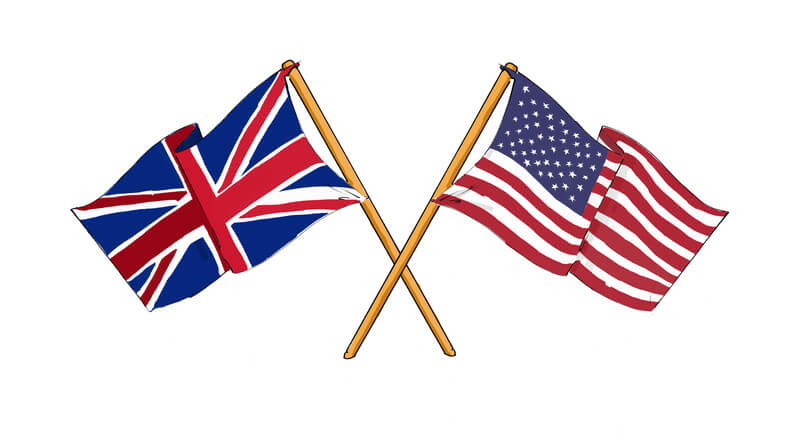by Robert Bibeau
9.1.2019
In all honor, the Apple firm (U $ 1 trillion in assets) has reduced its profit forecasts due to the slowdown in consumption in China (2018). Immediately, Wall Street fell followed by bad stock market news: “The Hang Seng index of the Hong Kong Stock Exchange has lost 2.02%, or 531.66 points, to finish at 25,840.34 points. In mainland China, the Shanghai Composite Reference Index fell by 2.13%, or 57.66 points, to 2,645.85 points. That of Shenzhen will have lost 2.72%, or 38.51 points, to 1,378.92 points.
Same thing on the Hong Kong Stock Exchange. (1) The year 2019 will be worse than 2018, for proof, the site Zero Hedge reports that: “US equity markets have never fallen so much in December since the Great Depression of the 1930s”. According to a poll from an American university, nearly half of CFOs think America will be in recession in a year. All banks are mistreated on Wall Street and concerning the “hedge funds”, speculative investment funds, is the massacre. (2) Is it simply a new stock market equation or the expression of a systemic crisis in fermentation? (3)
The price of oil and copper dropped
There are lots of funds (trust capital) available that the markets can not absorb as a result of the issuance for years of bogus currencies by central banks and private banks. In 2018, prices for oil and copper declined due to declining demand and declining manufacturing activity in the euro area, which has been declining for five months. In Europe, only three large companies ended the year by improving their financial results at a rate considered normal. In the United States, speculative capital no longer buys debt issued by companies and it is reluctant to buy US Treasury bonds in constant depreciation.
Euro Area Purchasing Managers Index
In Europe, the red lights are on: the port activity in Portugal collapses; the manufacturing master index (PMI) for all European manufacturing – which reflects both production and new orders – stands at 51.4 points, the lowest since February 2016. (4) There is stagnation, with no hope of forgiveness since the classic “exit” from such a crisis is the profusion of credit currencies to reactivate consumption while seeking new markets … that do not exist. And since these new markets do not exist, he leaves only an alternative to capitalists globalize – to make the trade war to seize the markets of their competitors – signal of commercial war that Donald Trump gave as soon as it took office as announced in 2017. (5)
The tragedy of housing
In Spain, Christmas sales have been disastrous, even for toy makers and Zara-Inditex . The “good numbers” of employment are based on construction, but the new housing boom, with record prices since 2007, seems to have found a ceiling that goes as follows: rent, above market prices before the Rent crisis, wages have largely passed. With a Euribor in record numbers it does not seem that the purchase of housing can offset the loss of rents for the real estate industry. What awaits the Spanish proletariat are millions of families who spend their meager savings to pay their mortgages before being expelled. (6)
The gulf of hyperinflation
The temptation to revive the spread of credit money will be great in these circumstances. If it restarted the creation of counterfeit money, the ECB would only trigger the loss of confidence in the euro and hyperinflation. It is to be feared that, in the event of an explosion in the euro zone, the hyperinflation will appear in each European country at the same time as the reintroduction and devaluation of national currencies. (7)
The future of the two classes at war for their survival
The bourgeoisie has a long tradition of denying the crisis and embarking on debates about slowing down, collapse, recession and “imminent” recovery (sic). It is enough to consult the data of the World Bank to find that the capitalist system did not leave the crisis of 2008, the accumulation is always stuck in the same trap: the impossibility of selling the production, the lack of profitable investments to value productive capital, falling profit rates, a refuge for speculative speculative investments.
Each of the competing national capitals has only two possible ‘solutions’:
1) to increase the exploitation of wage labor – to precariate and impoverish ourselves – or
2) to gain access to markets and investment opportunities by wage war against competitors, that is to say, rush into a generalized war, commercial first, then military.
For the proletarian class there is only one way out, to face the dictates of the needs of capital against the human needs of the proletariat and, by resisting, to affirm the need for a world to “be decapitalized”, without property neither private nor state-owned means of production, exchange and communication.
NOTES
2. http://www.les7duquebec.com/
3. http://www.les7duquebec.com/
4. Recall that the index 50 means that stagnation is installed http://www.
5. The electoral masquerades in the United States (2017) L’Harmattan. Paris.
http://www.les7duquebec.com/7-
6. http://www.les7duquebec.com/
7. http://www.les7duquebec.com/
* Robert Bibeau is a journalist, specialist in Marxist political economy and proletarian activist for 40 years.
French http://www.les7duquebec.com/7-au-front/une-nouvelle-crise-economique-a-t-elle-commence/
